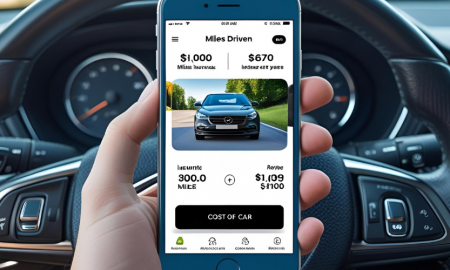
Wondering If Your Car Has a Problem? You Might Just Be Right!

Whenever you buy a car, you pray to God that it isn’t faulty, or will go the distance depending on the time frame that you would like to use it for.
Unfortunately, when you purchase your car from a private buyer, cases of faults are prevalent, and you might just find yourself the proud owner of one of the most stubborn cars on earth!
If that’s not enough, individuals that purchase vehicles from private owners have less legal rights and protection as compared to purchasing the car from a dealership or a car auction.
That being said, each option has its own set of problems that you’re likely to experience.

Buying a car, especially a used car from dealership, can be prone to faults that might be expensive to repair
What Are Some of the Issues of Purchasing a Car from a Dealership?
If you purchase a vehicle from a nearby dealership, you are protected under the Consumer Rights Act 2015 in the event that the car has a series of issues.
As a matter of act, the Consumer Act states that the car must be bought while in satisfactory quality. Moreover, the car should be fit for purpose.
This means that when a dealer is selling a car, it is your right to know the car’s mileage, as well as its age.
In fact, you as the consumer have the full right to reject the car in the event that there are a series of faults located in the car.
Additionally, within 30 days of purchase, you can request for a refund in the event that you are not satisfied with the car’s performance.
Once the 30-day period has elapsed, you lose the right to reject the car.
Unfortunately, after this time lapse, the only rights you remain with are requesting for a partial refund, and replacement or repair of certain parts.
That being said, you are legally allowed to return the car before six years. However, it can be quite difficult to prove that the fault was initially there before the day of purchase, and not the effects of regular wear and tear.

While purchasing a car from a dealership, you have a set of rights that allow you to reject the car. However, these rights are no longer existent after 30 days
How to Fix This
Fortunately, if you have an issue with a car that you purchased from a dealer, here are some of the ways that you can go about it:
You should get in touch with the dealer as soon as possible when you detect the fault. If you’re able to book an appointment with them, that’s even better.
In the event that the dealer accepts to handle the issue, ensure you understand the costs if there are any to be paid. Moreover, you should record conversations that you’ve had with any correspondence or the owner, as well as get all the verbal agreements on paper.
If this step does not work out, you can opt to reject the vehicle on the condition that you attempted to resolve the problem with the dealer but they refused to collaborate.
Moreover, you should provide the dealer with reasons as to why you are not accepting the car (in writing) before rejecting it. It would be wise to have this done six months before you purchased the car.
In the event that the dealer does not accept your rejection of the vehicle, you can decide to get in touch with the relations department from the manufacturer company of the car. They could serve as mediators during your dialogue.

Purchasing a vehicle from a dealership via hire purchase or debit card results in extra legal protection in the event of an initial fault as compared to a cash purchase.
How to Get Extra Protection When Purchasing Your Vehicle
If you plan to purchase a new or used car from a dealership and it happens to have an issue, you have the right of extra protection if you purchased the car via:
Hire purchase- According to the Consumer Credit Act 1974, under section 75.
It states that the vehicle should be fit for its purpose and of satisfactory quality as earlier described.
In fact, if you purchase via high purchase, the responsibility of the car falls under the dealer, rather than the finance provider, who is legally responsible for any issues that the car might have.
Additionally, if you paid for the purchase via a credit or debit card, it is possible that the trade and the trading company are equally responsible for any issues that might arise as per the Consumer Credit Act 1974, Section 75.
More inDriving
-
`
U.S. Reduces Tariffs on Japanese Cars to 15% Under Trump’s Deal
In a move reshaping U.S.-Japan trade relations, former President Donald Trump confirmed a new agreement that slashes tariffs on Japanese car...
August 9, 2025 -
`
Adults in Ohio Face Stricter Rules to Obtain Driver’s License
Ohio has passed a new law that will change the way adults under 21 get their driver’s licenses. Signed into law...
July 31, 2025 -
`
Gen Z Craves Career Guidance, But Their Parents Are Struggling Too
Gen Z is stepping into the future with curiosity and ambition—but they’re not doing it alone. A growing number of teens...
July 25, 2025 -
`
Do Car Insurance Companies Offer Pay-As-You-Go Plans?
Car insurance premiums often feel unfair to people who rarely drive. Yet, most traditional auto policies still charge a fixed monthly...
July 17, 2025 -
`
Why the Koenigsegg Sadair Spear Is the Ultimate Hypercar Beast
Koenigsegg has revealed a new beast—the Sadair’s Spear. Tuning its focus on raw performance and brutal speed, this hypercar marks the...
July 11, 2025 -
`
Which States Have the Safest—and Riskiest—Drivers in America?
Driving safety isn’t just about skill. It’s also about location. A recent nationwide report shines a spotlight on where drivers are...
July 4, 2025 -
`
How to Save on Tesla Car Insurance Without Compromising Coverage
Owning a Tesla often brings savings on fuel and a futuristic driving experience, but the conversation changes quickly when it comes...
June 26, 2025 -
`
10 Weird Cars That Turned Heads and Won Hearts
Some cars turn heads with speed, others with luxury—but a rare few grab your attention simply by being delightfully strange. From...
June 20, 2025 -
`
Next-Gen Jeep Cherokee Expected to Arrive by Late 2025
After a break of two years, Jeep is prepared to relaunch the Cherokee brand. The automaker confirmed the return with fresh...
June 12, 2025















You must be logged in to post a comment Login